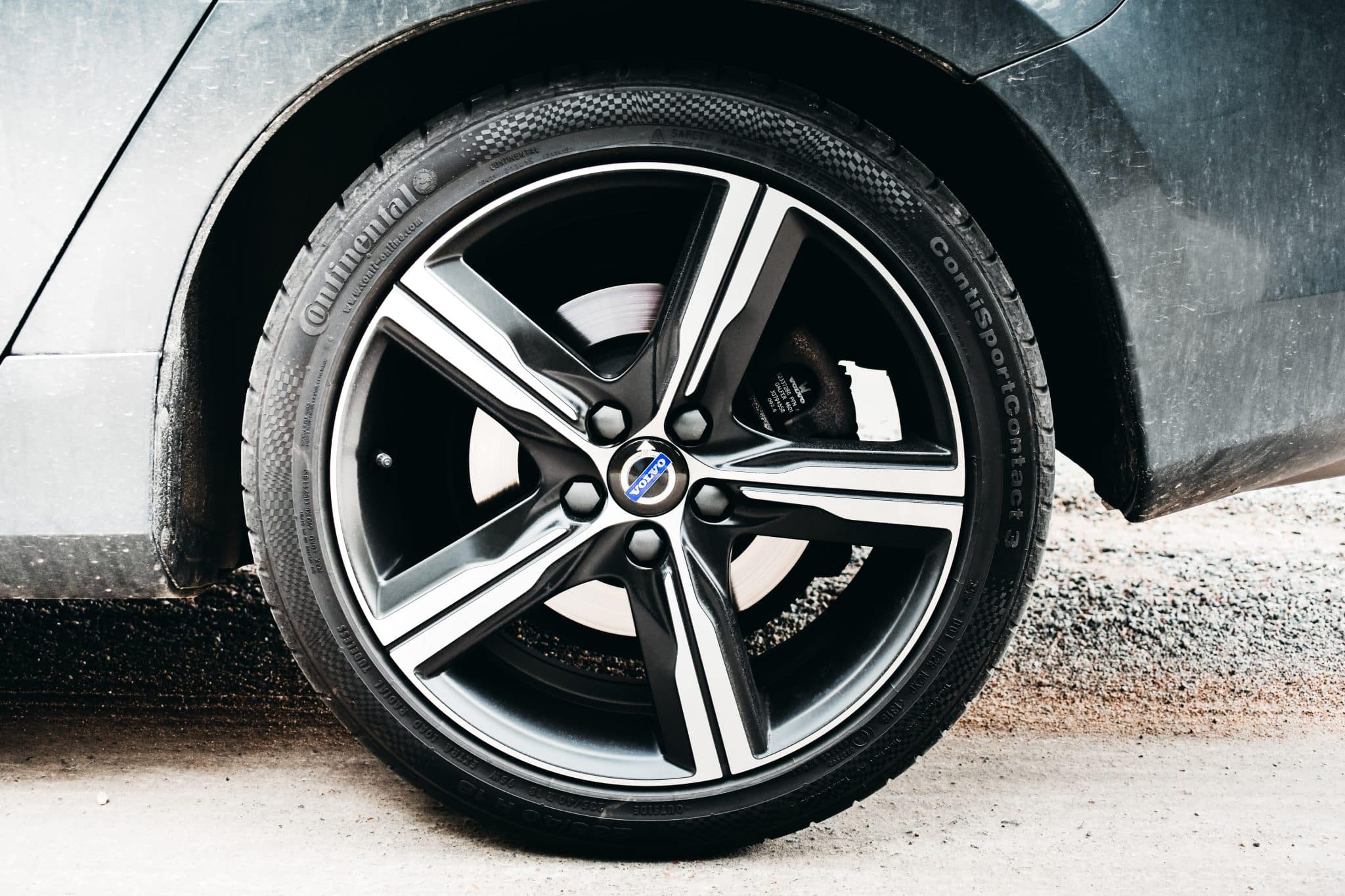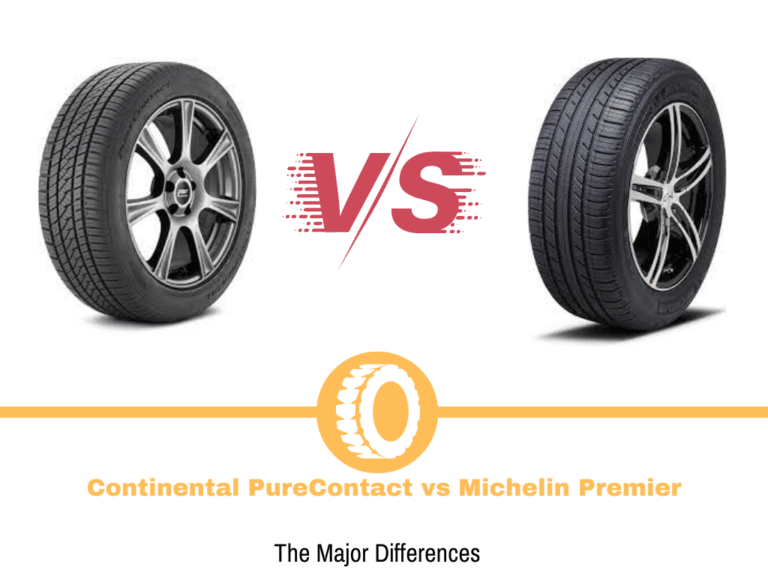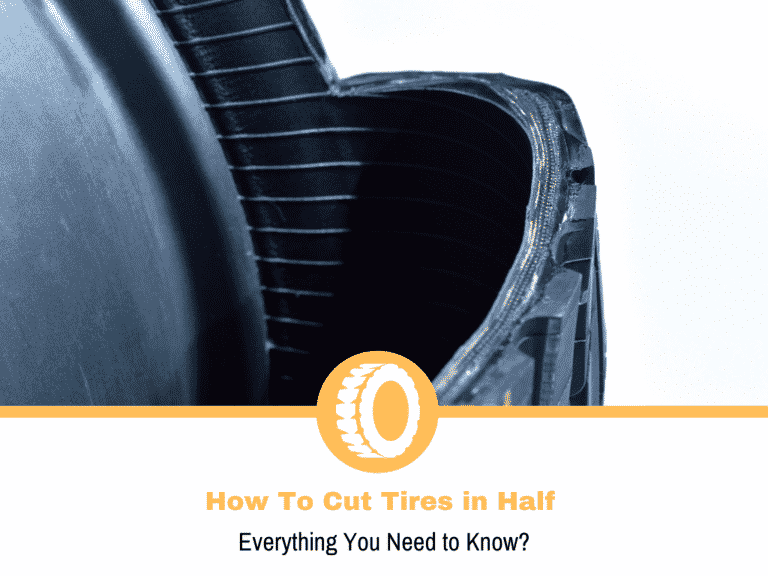Tire Noises You Shouldn’t Ignore
As the car industry evolved throughout the decades, cars became quieter. If you compare any modern hatchback with something from the 90s, you’ll understand how loud the cars were back then.
You’ll still hear some noises in the car despite everything getting quieter. EVs are the quietest option due to the lack of an internal combustion engine, so you’ll hear less. For the most part, you’ll be hearing some tire noise, which brings me to today’s topic.
Like cars, tires have evolved and become longer lasting, better performing, and, most importantly, quieter. Despite that, there is still some noise, and it’s important to distinguish the normal one from the abnormal one, which is what I’ll be talking about today.
Explaining some sounds is a bit difficult in written form, but I’ll do my best to explain how it sounds and what it means. Since not all abnormal sounds come from the tires, I’ll also quickly go over a few non-tire-related parts that may cause it.
Disclaimer
Before you start listening to everything that’s happening around you and start panicking, it’s important to distinguish normal from abnormal noises. Some of these are pretty noticeable, but others can be deceiving. It can be a bit easier if you’ve had your car and tires for a while and already know all the normal sounds you’ll hear. Hearing something different usually means that there’s something that you need to inspect.
Not all people are experts in this area, so if you’re unsure about something, it may be in your best interest to take the car to a reputable mechanic.
Squealing or Screeching
This is one of those noises that are pretty hard to miss. There are some situations where tire squeal is normal, but often, you’ll find that there is a problem. In most cases, tire squeal is noticeable when going around a corner.
Doing a turn in a tight space in a closed parking lot with the steering wheel in a full lock may result in some squeal. It’s normal, so let’s talk about situations where it isn’t, like going around a corner, where you don’t have the steering wheel in a full lock position.
If that’s the case, you’re looking at several situations. The first thing to consider is the type of tires you have and how aggressively you’re driving. Not all tires have the same levels of grip, so you can expect to hear them squealing when you go into a corner hard. If you’ve ever been on a track, you should have an idea. Cars are driven on the limit, and once the tire starts to squeal, you know that you’ve reached the limit.
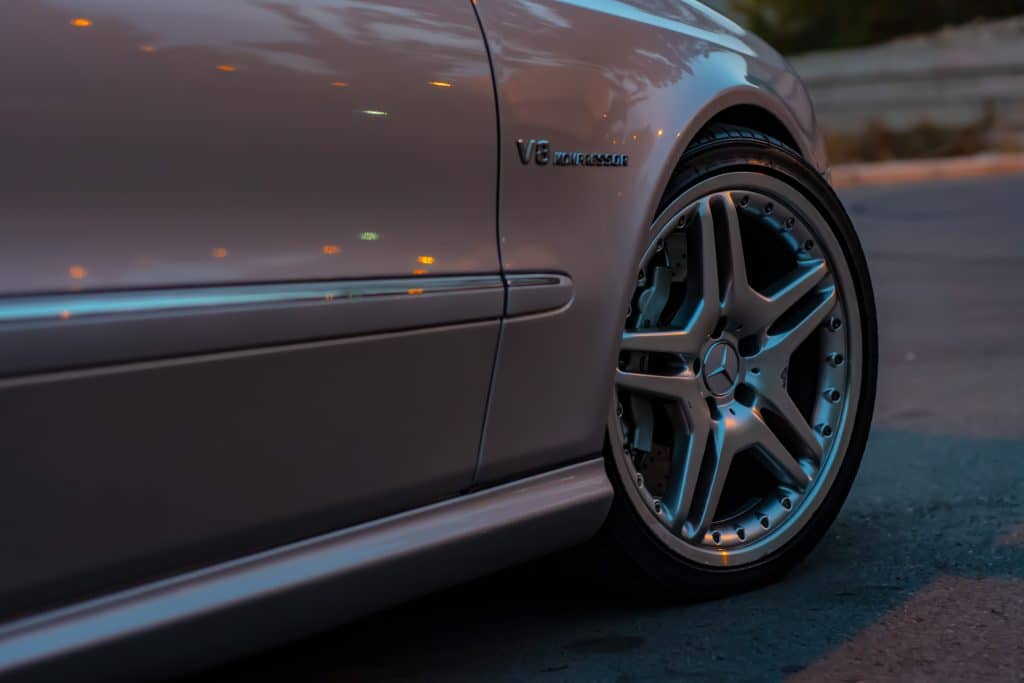
What if you’re not driving like you’re on a track, but the tires still squeal? Then you have a few more reasons for that problem. A common one is old tires. I talked about tire age as something to consider, and it’s one of the reasons why you’ll hear the tires squealing.
This happens because the rubber is old and won’t be able to hold to the road as well as it did when the tires were new. It hardens, and the tires don’t have the same levels of grip, and as you’re going around a corner, they skip over the surface, and you get the sound. It’s a similar story with most cheap Chinese tires. Even when they’re new, they don’t have very high levels of grip, so even at lower speeds, you’ll hear them squealing. The solution to this is to replace the tires.
It’s a similar story when it comes to worn tires. Regardless of whether we’re talking about regular wear, where tires are near the legal limit, or some kind of uneven wear, the squeal is something you’ll notice more. It’s more noticeable with uneven wear because as the tire rotates, it will reach a point where it’s more worn and will practically skip slightly, resulting in unwanted noise.
There are many problems when it comes to driving with incorrect tire pressure, and squealing is one of them. It doesn’t matter if we’re talking about under or overinflated tires; you’re not running the tire with the optimal contact patch, which can lead to that annoying sound, especially when going around a corner.
When it comes to tire pressure, you’ll probably notice it more when running overinflated tires. If the internal pressure is high enough, the tire will deform the tread pattern and create a curve. It means that the contact patch is smaller, and only the central part will make contact with the road. A smaller contact patch usually means less grip, so the tires will skip a lot more than you’d want. Luckily, this is a quick fix.
Driving straight and hearing some squealing isn’t a good sign, but luckily, it’s not that common. If you happen to hear the tires squeal when going straight, and the noise continues when going around a corner, you’re probably dealing with an alignment issue.
If one of the tires isn’t aligned properly, it drags more than it rolls. A quick trip to a tire shop will solve this issue and should make the noise go away.
Humming
Unlike the squealing sound, a humming noise doesn’t have many causes. For the most part, if you start to hear this kind of noise, you’re probably looking at uneven wear, so let me explain why.
Tires make noise, as I explained in my guide, so hearing the tires is perfectly normal. When it comes to uneven wear, things are a bit different, so the humming noise will be a bit different. It happens because if you have uneven wear, the tread depth isn’t the same throughout the tire, so the tone changes whenever the tire reaches the point where it’s worn down more.
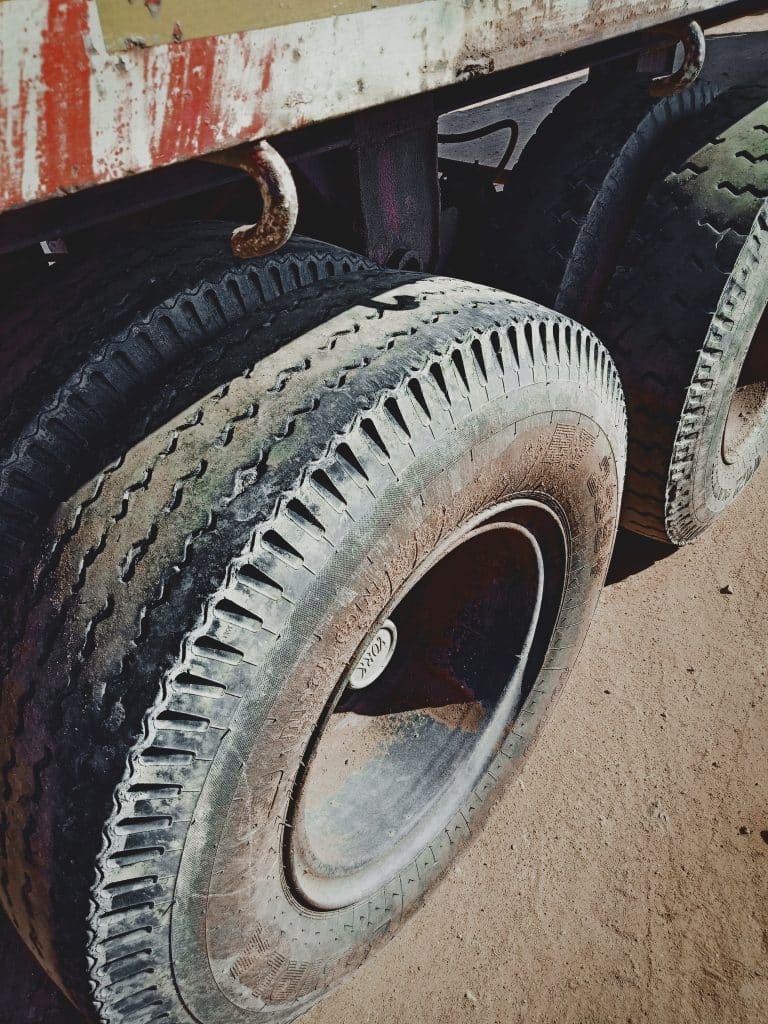
It can be a bit difficult to distinguish, especially when we’re talking about outer or inner tire wear. If you haven’t been paying attention too much, you may miss it because if you have uneven wear, the tires wear out gradually, so it’s not like it will suddenly become noticeable. This is why it’s essential to inspect the tires regularly, to catch potential uneven wear sooner and avoid potential problems down the road.
Thumping
When it comes to thumping, there is a slight problem. As good as we writers are with words, it’s not a sound that can be easily described. Thumping, faint drumming, or bumping are the several things that come to mind. With the explanation aside, what causes this?
The thumping sound usually comes from tires with uneven wear, but not all kinds. You’ll hear this noise when you have cupping wear, the one where the tire looks like it has random flat spots across the tread. The reason why it’s making this noise is because as the tire rolls, it makes a thumping sound when the tire rolls over that patch on the road. It’s like a rhythmic sound, depending on where and how many patches are affected.
Unfortunately, there isn’t a solution to this problem unless you plan to replace the tire. The problem is that if you replace one tire, you may need to replace all of them because mismatching the tires isn’t the best idea.
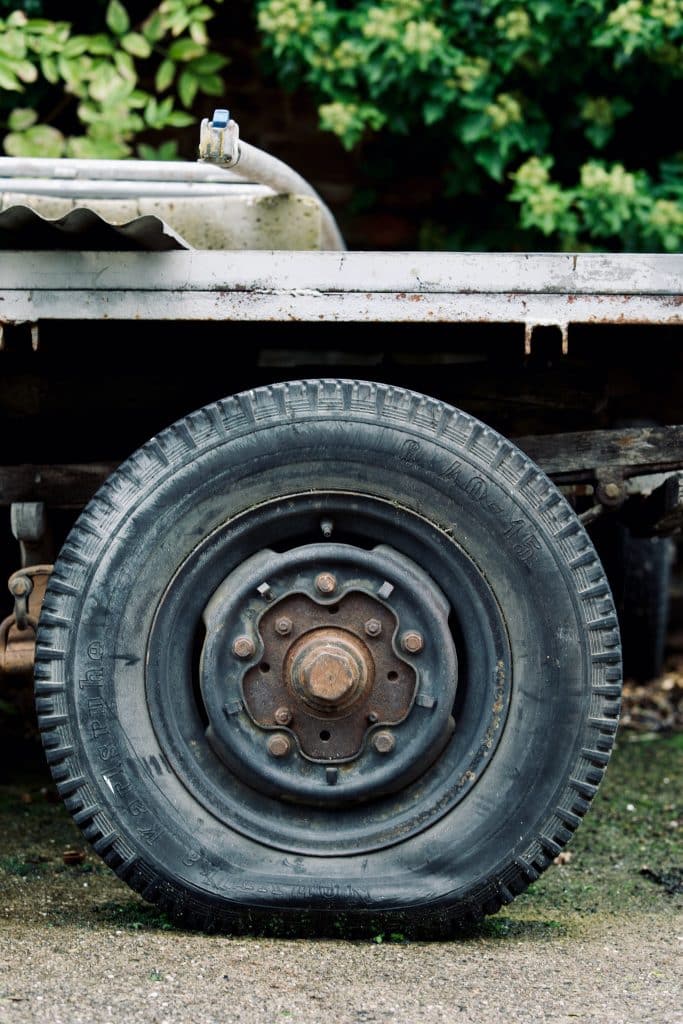
Another reason why you may hear a thumping noise is due to underinflation. The tire won’t roll as intended, so in certain situations, it may cause that noise. Although, if this is the issue, the changes are higher that you’ll hear a bit of humming.
Other parts that can make similar noises
We cannot blame tires for all these noises you may hear because plenty of other components can be the culprits. Even though we usually cover tires, I’m going to give you a brief explanation to have an idea of what the problem may be.
Squealing is often associated with tires, but there is a situation where another component can produce that noise. If you hear that when you’re braking, the problem is with the brakes. It can range from dust and debris to worn-down pads or moisture in the morning. If the noise continues for longer, you might want to check it out.
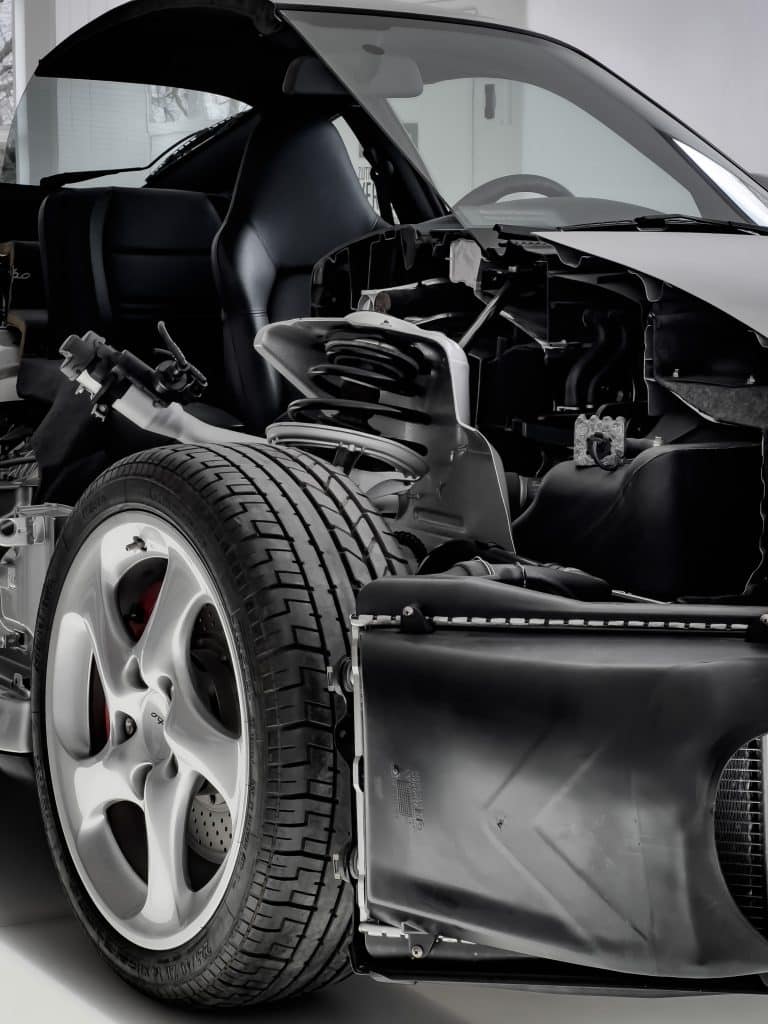
The thumping noise is something that can be a result of issues with the suspension, depending on the type. If it’s not constant and you notice it over bumps, the tire is probably not a fault here.
What about humming? Well, this one is simple. If the tires are good and you hear a humming noise, you have a bad wheel bearing. It starts with a hum, and over time, it turns into a grinding noise, indicating that you should’ve replaced it a long time ago.
Conclusion
With any car, there are normal noises and those that indicate some kind of a problem. Since tires are part of a car, the same rule also applies to them. Hearing the tires isn’t a problem; hearing something out of the ordinary is.
There are several different abnormal sounds that tires can make, and all of them mean that something is wrong. In some situations, the fix is simple and relatively cheap, while with others, it will cost you a bit more. The most important thing to note is that you shouldn’t ignore them.
Also, these kinds of noises don’t necessarily mean you have problems with the tires. Other components can produce similar noises, so don’t jump to conclusions right away. The most important thing here is to determine that there is some noise that shouldn’t be there. If you notice something like this, make sure to take your car to a professional to diagnose the problem.
